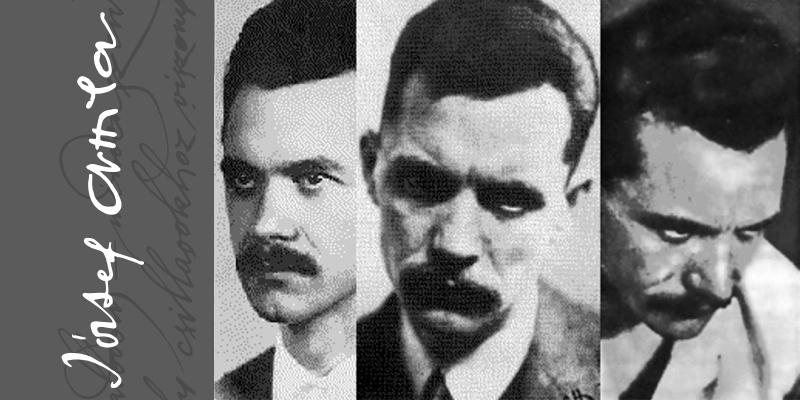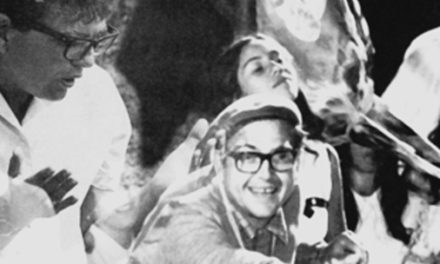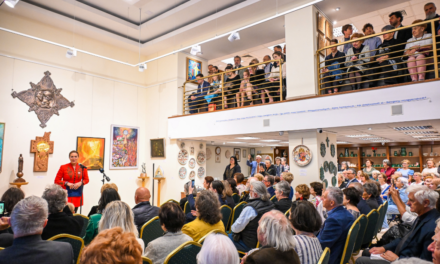Poeta sacer - writes Béla Hamvas about the poet who guards the Temenos, the circle that is both heavenly and earthly.
The sacer is the high priest, the sacred king, the border creature,
"who meant and represented the human among the gods, and the divine among the people, with one foot here, one foot there, lived in two worlds, with a double being, two faces, two responsibilities, he held the two worlds together."
Sacer means both holy and cursed. An anointed and a fool who gives up his earthly existence, holds up a mirror to the crowd, takes his sins upon himself, and is therefore trampled and killed by the crowd. The sacer should only be approached with caution and only by the initiated, as it has enormous power: it conveys the power of the Powers. In the profane world, the sacred personalities retreated, the masses suppressed them: the king, the priests, the nobles, in turn, gave up their place. The Temenos is burning, and only the poet guards the sacred circle.
Hungarians have two such sakers: Sándor Petőfi and Attila József. They are the ones who showed the power of their poetry in their destiny, one of them was chased away by the "benevolent people", even though he sacrificed his young life for them in a patriotic fight, the other was driven to commit suicide.
However, the mirror remains with us. Both are named "live forever" and changed our world. Even today, the self-aware crowd can connect with the Powers through them.
Attila József's birthday is also the day of poetry.
"After all, he is in every window of every train"
Tamás Cseh sings about it.
They tried to put his name on flags, appropriate it, point to it, cover it with him, but his brilliance overrode these attempts. First he was silenced, then he was called a proletarian poet, a communist, even though he was only an orphan who, according to Kosztolányi, was "a head taller than all of us".
Of course, the sacer is not interested in "poetry itself, wouldn't it be nice if the star of the night river rose to the sky". The sacer is interested in the eternal man finding his place, staying in touch with the world of "spirit and love" that gave birth to him, believing that there is indeed a language that touches every soul. Because everything is one: including the soul.
"To be a poet is to undertake to preserve the symbols of all abandoned and abandoned human dignities"
- continues Hamvas, to guard the place of the gods. A hundred thousand years of watching what they suddenly see. To be Dózsa and to choose a gentle future for Werbőczi, Árpád and Zalán instead of fascist-communism in the wild storms of hatred. And this is still a valid choice today! So that we can all live with the special gift of human dignity: how
"Let us men remain men and women remain women - free, kind - and they are all human, because there are fewer and fewer of them."
They left him to die there in Szárszó. In the barely heated rented apartment, in poverty, in illness, in despair. He could no longer fit in the car and receive the Baumgarten Award.
However, he, the sacer, still changes everything today. He turns envy into generosity, hatred into love, blindness into insight. His verses continue to serve here among us; on this day we gather at the sacred circle and we all bow before the "son of the street and the earth", the priest of poetry.













